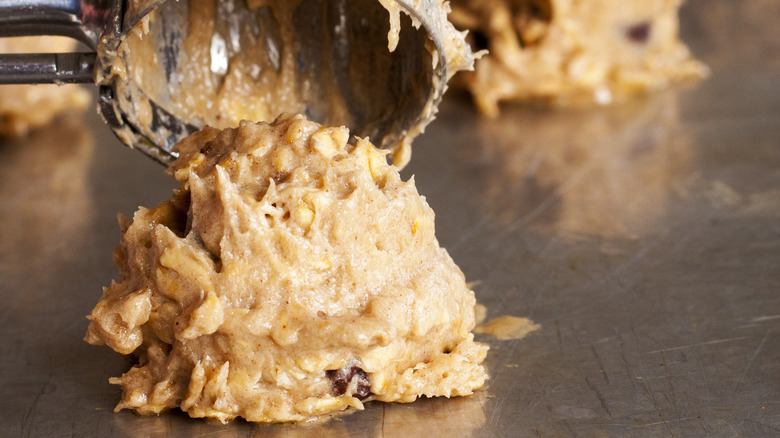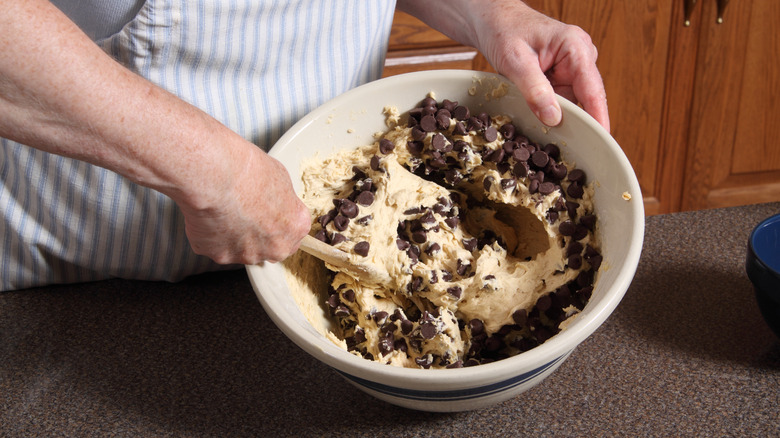The Longest Your Cookie Dough Will Last In The Fridge Before Baking
Have you ever made a batch of homemade cookie dough and then you didn't have time to bake all the cookies right away? When that happens, you may be wondering how long your dough will last in the fridge before you have to toss it and start over. While store-bought cookie dough has preservatives that keep it good for up to two weeks in the fridge, homemade cookie dough does not have that luxury.
The shelf life of homemade cookie dough is debatable, with the USDA saying it only lasts for two to four days, while multiple baking sites claim that it can last in the fridge for three to five days, if stored properly. Simply Healthy Vegan says that vegan dough can last up to 10 days, because it doesn't contain dairy. Additionally, add-ins, like fillings or flavorings, can also alter how long your dough lasts. There are a few simple ways to get the longest shelf life from your homemade dough, however.
Storing your homemade cookie dough
To properly store your homemade cookie dough, first transfer it to an airtight container, such as a plastic container or a resealable plastic bag. Make sure the container is tightly sealed to prevent air and moisture from getting in. You can also wrap the dough tightly in plastic wrap before storing it in the fridge. This will help prevent it from drying out or developing freezer burn. Remember to label the container or plastic wrap with the type of cookie dough and the date it was made so that you can keep track of how long it's been in the fridge.
If you don't plan to use the dough within four days, you can freeze it. You should divide it into individual portions based on the amount you'd like to bake at one time. Roll each portion into a ball or shape it into a log. Then, wrap each portion tightly in plastic wrap to prevent freezer burn. Place the wrapped cookie dough portions in a freezer-safe container or a resealable freezer-safe plastic bag, squeezing out as much air as possible before sealing it. Label it, then freeze. It can be frozen for six months to one year.
Checking that your dough hasn't spoiled
Before baking your dough into cookies, you'll want to make sure it hasn't gone bad. There are some signs to look for to make sure your dough is still good. First, if it looks discolored or has mold, it's best to discard the dough. If it smells off or has a sour odor, or if your cookie dough has a dry, crumbly, or slimy texture, get rid of it. If you see none of this, but your baked cookies have a strange or unpleasant taste, it's best to throw them away.
Consuming spoiled cookies or raw cookie dough can lead to food poisoning, according to WebMD. Even if you don't get sick from it, cookie dough that's gone bad just won't taste right or bake properly. You'll get cookies that are flat, dry, or crumbly, not fluffy, soft, and moist. If you think your dough has spoiled, it's best to err on the side of caution and discard it.


